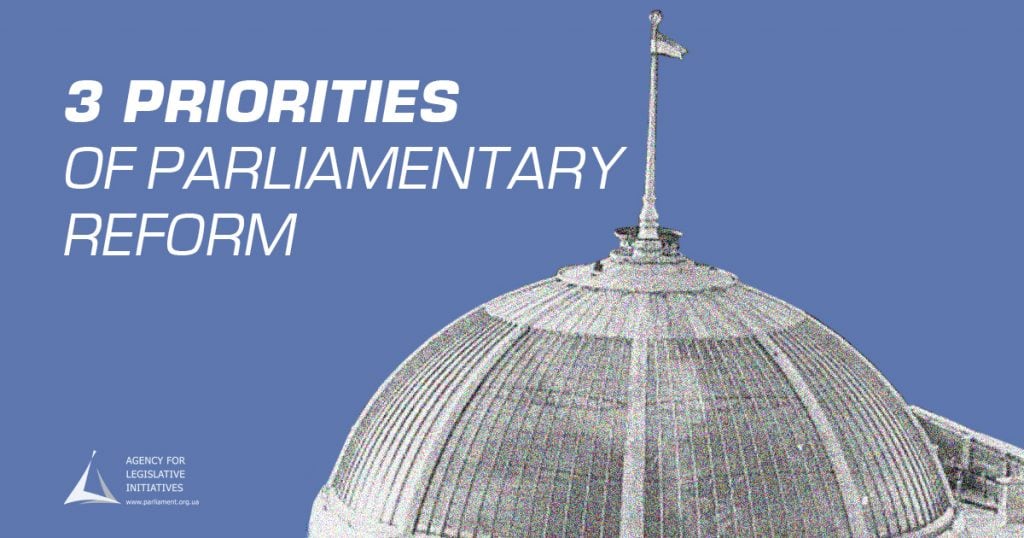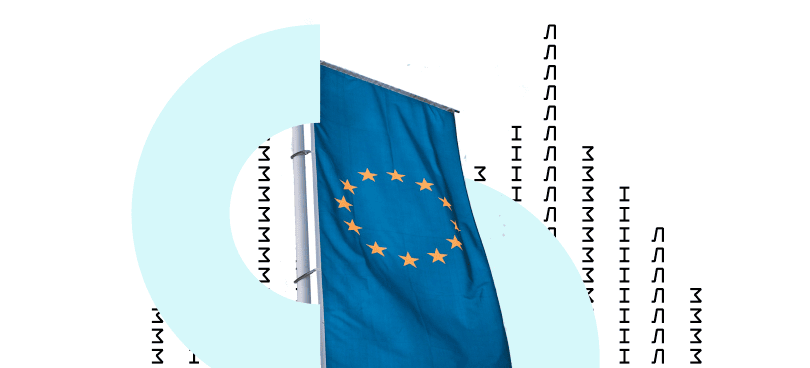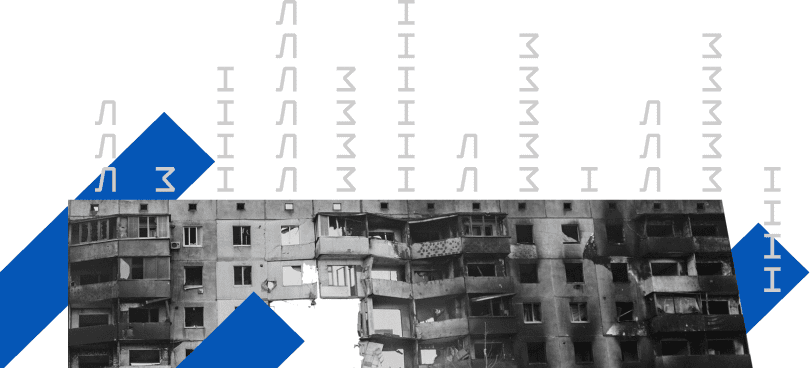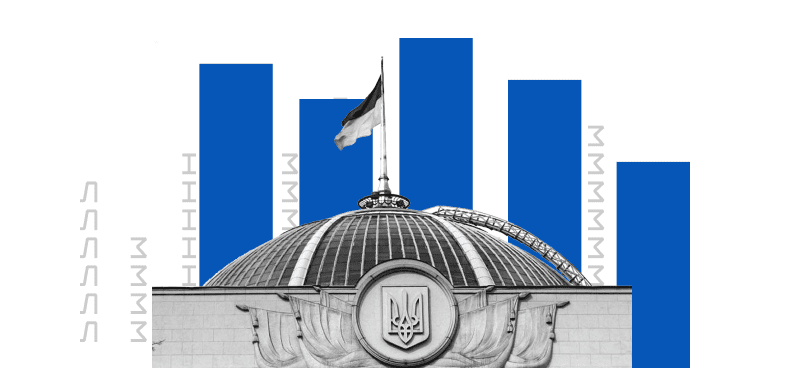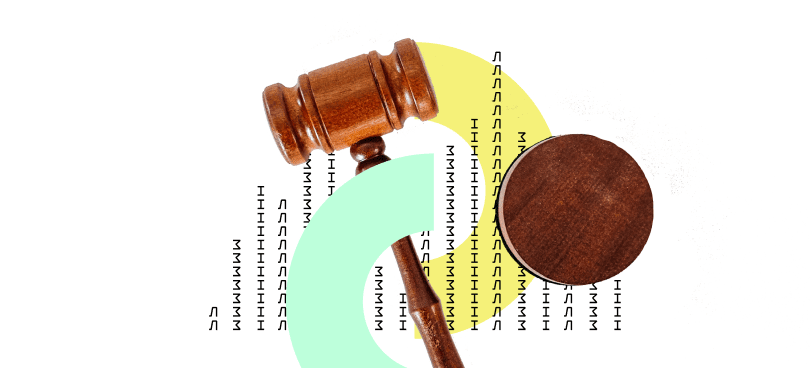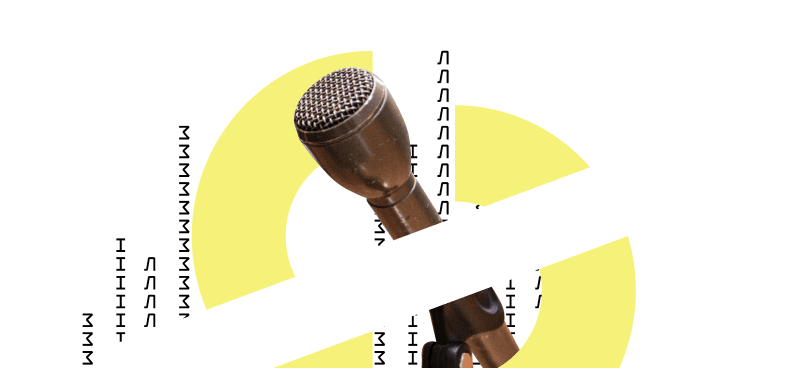The Agency for Legislative Initiatives has been promoting the implementation and monitoring the parliamentary reform for many years. According to our latest monitoring data for 2021, the reform of the Ukrainian Parliament has been completed by 45.7%. In recent years, the rate of implementation of the reform has decreased, but the political leadership of the Verkhovna Rada recognizes the need to fulfil the commitments made regarding the implementation of the parliamentary reform. In addition, judging by the public statements of the political leadership of the Parliament, the authorities are fully aware of the actual state of implementation of the reform and the problems in its implementation. And the very fact of a realistic assessment of the situation gives hope for the solution of these problems and the successful completion of the reform.
Today, the Agency is included in the working subgroup on parliamentary reforms in Ukraine and has the opportunity to actively and constructively cooperate directly with representatives of the Verkhovna Rada in this direction.
What are the current priorities in the implementation of the reform of the Parliament? What should be emphasized to change the situation for the better? Oleksandr Zaslavskyi, Director of the Analytical Direction of the Agency, during the forum “Democratic reforms for the integration of Ukraine into the EU: a dialogue with leading reformers”, voiced for our European partners and Ukrainian colleagues from civil society and the Parliament 3 priorities of parliamentary reform in Ukraine.
1. Increasing the requirements for expert-analytical supporting documents, particularly explanatory notes, in the legislative process.
A well-known problem that complicates the work of the Verkhovna Rada is the production of a large number of legislative initiatives. And this affects the quality of legislative initiatives, as well as the workload of MPs and structural divisions of the Apparatus of the Verkhovna Rada. At the IX convocation of the VRU, there is a steady decrease in the number of, first of all, legislative initiatives by MPs, which is certainly a positive trend. However, it is possible to reduce the amount of “legislative spam” in other ways. In particular, by increasing the requirements for expert-analytical support, generally by increasing the quantity and quality of accompanying analytics in the legislative process. There are global examples when such a step, in particular, increasing the requirements for the preparation of impact assessments of draft acts, reduced the number of these same drafts by many times. This indicates an increase in their quality, as the share of draft laws that change existing laws is radically decreasing.
This also includes strengthening European integration expertise at the parliament level. In particular, by strengthening the capacity of the Committee on Ukraine’s Integration into the European Union. The Verkhovna Rada has three committees whose conclusions are binding on all draft laws: budget, anti-corruption, and European integration. During the convocation, thousands of draft laws pass through these committees. Accordingly, increasing the requirements for accompanying documents, particularly for draft laws related to European integration, and increasing the ability of the Committee on Ukraine’s Integration into the European Union to develop a large number of draft laws will improve the entire European integration direction of legislation. And this, as we understand it, is currently becoming extremely important and relevant.
2. Strengthening of parliamentary control.
The war actualized the issue of democratic control in the sphere of security and defence. Changes to the legislation in this direction have already been adopted in Ukraine, which will come into force next year. In particular, a special control committee unique to the Verkhovna Rada will be created, which will carry out control in the field of security and defence.
In terms of parliamentary control, it is worth giving an example of how the Verkhovna Rada adapted to the conditions of war. Since February 24, we have not had the time of questions to the Government, but a special format was introduced when individual ministers met with the heads of parliamentary factions or with representatives of the majority in the Parliament. Some ministers managed to go through this format several times. As for specific actions to strengthen parliamentary control, we must talk about strengthening the system and the regularity of its implementation. Including at the level of committees.
3. Ensuring the sustainable development of the Parliament as an institution, in particular, increasing the personnel potential of the staff of the Verkhovna Rada Apparatus.
This is also a crucial aspect of the reform. Since the Apparatus is, in fact, a parliamentary service. Although we currently do not have a separate parliamentary public service, the Apparatus of the VRU is the structure that ensures the stability and institutional memory of the Verkhovna Rada. These are people who ensure the work of the parliament even during the war. Among the Apparatus employees, a significant number of those have been working there for more than 15 years. These are high-class specialists. Their experience should be preserved and multiplied, and the status of a parliamentary employee should be strengthened. For this purpose, the draft law on parliamentary service was developed and adopted in the first reading. It would be excellent to adopt it as a whole. The strategy for building the staff potential of the Apparatus of the Verkhovna Rada was also adopted and is already at the final stage of implementation. It should be updated with an emphasis on maintaining the Apparatus employees’ high level of professionalism and preserving institutional memory.
The Agency for Legislative Initiatives will, as far as it can, support these and other areas of parliamentary reform. And we once again emphasize the importance of the stable functioning of such an institution as the Parliament for the implementation of all other reforms and for Ukraine’s progress on the European integration path.
This publication was prepared with the financial support of Sweden.

